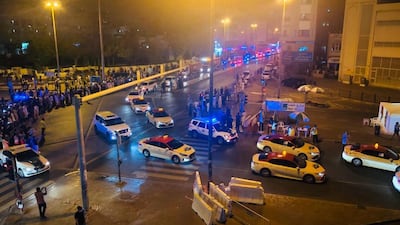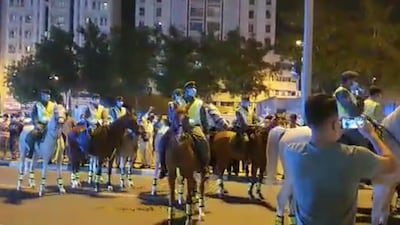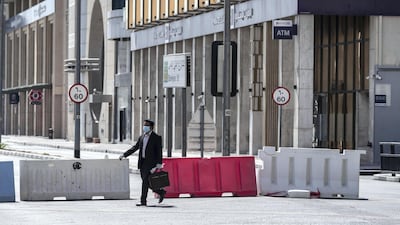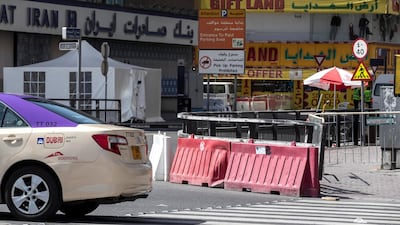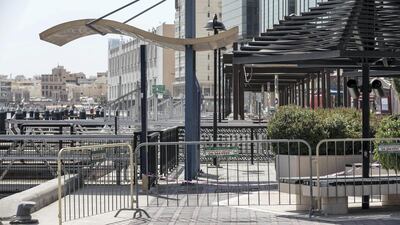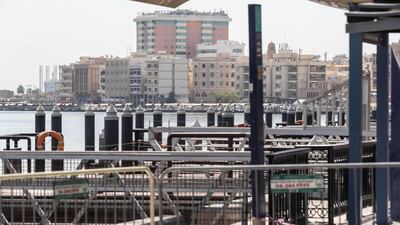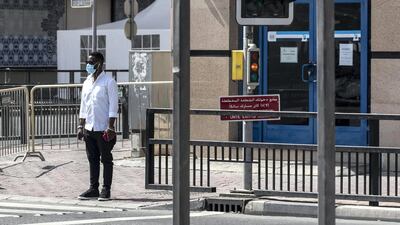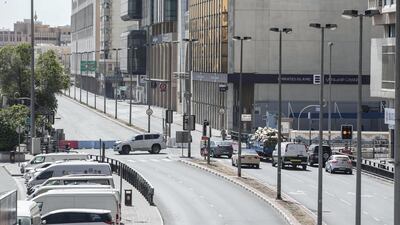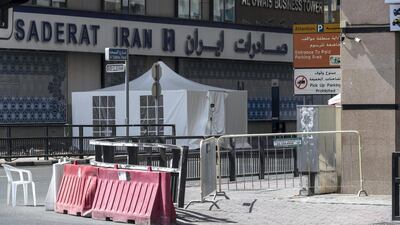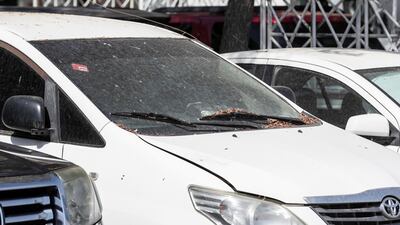Doctors have told of how they tested thousands of residents in Dubai's old town to identify each case of Covid-19.
In a four-week operation, medics carefully separated hundreds of suspected and confirmed cases and sent them to hospital or closed quarantine areas.
Dr Rohit Kumar, one of the consultants in charge, spent weeks in the densely populated Al Ras and Naif neighbourhoods, which were locked down between March 31 and April 26. Six thousand residents were tested.
Tents were set up in the streets to test hundreds a day while medics worked their way through buildings in which as many as 15 people shared an apartment.
Suspected cases were sent to an 'isolation village' in the Warsan district of Dubai.
"When we started there were red cases that needed admission to hospital and many yellow cases that required quarantine," said Dr Kumar, medical director at Medeor Hospital in Dubai, which was one of the private providers brought in by the government.
“As we started removing the suspected cases, with the police and Dubai Health Authority, to Warsan and other facilities, we saw a downward trend.
"The numbers gradually improved because we were removing symptomatic people who could be carriers."
Medical teams of private healthcare providers, including doctors and nurses from VPS, Aster and Prime, also conducted tests.
In the first phase on April 1, about 2,500 patients were given basic screening, such as temperature checks, and of the 350 given nasal and throat swabs, about 180 tested positive.
That led medics to believe there was a high number of infected residents in the district.
As they worked their way through the area and more cases were identified and sent to hospital or quarantine, new cases gradually decreased.
When another batch of 800 people was checked on April 15, 180 were fully screened and only 19 tested positive.
Medics took the results to mean that overall numbers had been reduced and the point at which the lockdown could be lifted was near.
No new cases were identified in recent days, the government said on Sunday, as it opened the district again.
The number of positive cases from the 6,000 tested in Al Ras and Naif has yet to be released.
In Al Ras on Sunday night, hundreds if not thousands of residents took to the streets to mark restrictions being lifted.
A convoy of police and emergency services paraded through the streets, accompanied by officers on horseback.
Many residents appeared to have been caught up by the sense of occasion, and were packed together in crowds without masks.
"It was because of pure happiness that people went down and there was so much of a crowd," Jaysukh Ratilal Makwana, owner of a wholesale business in the Deira Gold Souq, told The National.
“I saw the happiness from my balcony but people need to maintain distance now.
"Only if we keep safe can we be of use to our families. I’m telling people to stay in their homes now.
"Being on the streets will just create a nuisance for everyone and is not safe.”
On Monday, shop assistants arranged window displays with dried fruits and saffron, as food, clothes, shoes and jewellery stores opened.
There were a few queries from people seeking to sell gold in the largely deserted Gold Souq.
At another end of Al Ras, retailer VKR Sharfudeen checked supplies of rice and pulses in a large wholesale shop.
“It will take us sometime to find out the full impact of closing down the business,” said the Al Ras resident, who shares a large room with eight others.
Mr Sharfudeen, 50, has worked in the Gulf for more than 30 years and said he hoped the “uncertain times” would soon pass.
He was not able to send Dh2,000 of his Dh3,500 salary home last month because of the shutdown and worried about how his family in India was coping.
“We can only pray very hard this Ramadan and keep roza [fasting] so our prayers will be answered," Mr Sharfudeen said. "What else do we need but for everyone to be safe?”
Residents must still stay at home between 10pm and 6am, and should only leave home for essentials or to exercise.
Dr Kumar urged the public against becoming complacent at a time when about 500 new cases were recorded nationwide each day.
“For a layman when a lockdown opens he thinks the virus is finished, but this is wrong,” Dr Kumar said.
“Some restrictions have been removed to give people the liberty to do some daily activity.
"But the best way to keep the numbers down is to go out only when required.
"People must stay indoors and strict social distancing must be maintained.”










